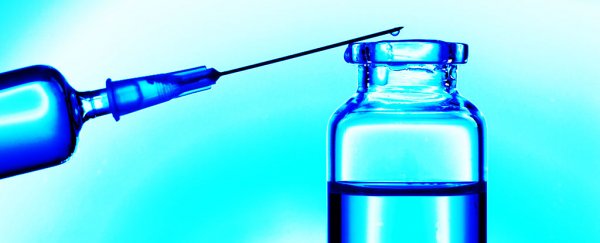Scientists in the US and Brazil have developed two separate vaccine candidates that provide mice with complete protection from Zika virus after just a single injection.
According to the researchers, this is the first time Zika vaccines have been reported successful in animal models, and the two candidates are now being readied for human trials.
The research gives new life to hopes that we'll someday soon have a safe and effective human vaccine to prevent the infectious spread of mosquito-borne Zika, which was declared a global public health emergency by the World Health Organisation (WHO) earlier in the year.
"To the best of our knowledge, this is the first report of Zika virus vaccine protection in an animal model," said lead researcher Dan Barouch from the Beth Israel Deaconess Medical Centre at Harvard University in a press conference announcing the results.
Barouch's team, working together with researchers from the Walter Reed Army Institute of Research (WRAIR) and the University of Sao Paulo in Brazil, tested a DNA vaccine based on a Zika virus strain isolated in Brazil, and a purified inactivated virus (PIV) vaccine based on a strain isolated in Puerto Rico.
Mice given a single shot of either of the two vaccine candidates were exposed to Zika virus at four weeks after vaccination, and a separate group eight weeks after vaccination. In both experiments, the mice were shown to be immune from Zika, with the vaccines eliciting an antibody response that staved off infection.
"This critical first step has informed our ongoing work in non-human primates and gives us early confidence that development of a protective Zika virus vaccine for humans is feasible," said researcher Col. Nelson Michael from WRAIR, which is pushing ahead initially with the PIV vaccine and hopes to start human testing later in the year.
Of course, there's no guarantee that we'll see the same results in humans as the researchers have found in mice – but the scientists remain hopeful.
"We need to be cautious about extrapolating the results from mice to humans," Barouch explained to the media. "But based on the robustness of the protection, the demonstration that antibodies protect and the similarity with other related viruses… these findings certainly raise optimism that the development of a safe and effective vaccine against Zika virus against humans may be successful."
The news follows last week's announcement by US-based Inovio Pharmaceuticals that it had secured FDA approval to begin clinical trials of its own experimental Zika virus vaccine candidate, currently called GLS–5700.
GLS–5700 will be tested in a trial involving 40 healthy people, expected to begin within just weeks. There's also at least three other Zika vaccine candidates currently being developed and tested, including one by Indian company Bharat Biotech, another from French pharmaceutical company Sanofi SA, and one by the US National Institute of Allergy and Infectious Diseases (NIAID).
In light of the damage Zika is currently doing, we can only hope these vaccines become available as soon as is humanly possible.
"The explosion of the current [Zika virus] outbreak and the devastating clinical consequences for foetuses in pregnant women who become infected demand the urgent development of a [Zika] vaccine," said Barouch in a press release.
"The effectiveness of these [two] vaccines, the clarity of the antibody protection and the similarity to successful vaccines that have developed for other flaviviruses provide substantial optimism for a clear path forward for the development of a safe and effective [Zika] vaccine for humans."
The findings are published in Nature.
